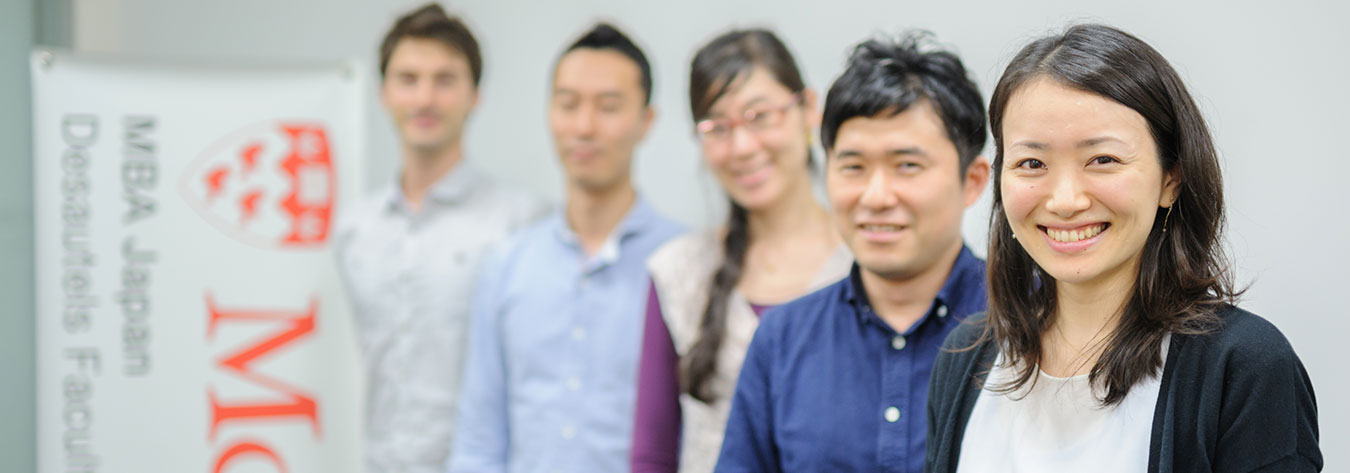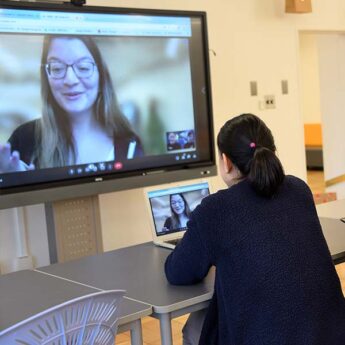In a world where competition in the job market is strong and candidates vie for a limited number of high-status jobs, it is the best qualified among them who are likely to win out and gain leadership roles in the private and public sectors. For applicants in Japan, the ability to compete—and be successful—on the global stage is within reach.
The McGill MBA Japan programme offers ambitious candidates a distinctive and innovative weekend MBA course that prepares them for the demands of international business and to function more effectively when facing challenges. At the same time, it offers high standards that are the hallmark of McGill University.
As part of the MBA, Canada’s premiere academic institution offers courses taught by professors from its Desautels Faculty of Management in Montreal.
This was a deciding factor for Marina Sato, who has lived in Canada and is a member of the corporate social responsibility department of a global firm.
“The McGill MBA Japan programme was very attractive to me because it offers the same programme as in Canada”, she said. “We get the same professors as in Montreal and study the same courses.
“It was important that the Japan programme was not only using the McGill brand, but also providing the same quality of lectures from the best school in Canada—which is what I wanted”, she added.
For Yasumasa Takenouchi, a deputy section manager of a chemical industry firm, the main attraction of the MBA, in addition to quality, is its convenience as a weekend course and its diversity: the mix of nationalities among faculty and students.
“I did not have to interrupt my career path,” said Takenouchi. “Also, I felt that I could widen my perspective by taking an MBA with classmates [and staff] from a variety of countries and with diverse business backgrounds”.
Sam Bird, an executive in a multi-media firm in Tokyo, has similar sentiments about choosing the programme.
“I made my decision after attending the McGill Japan Forum and university party to welcome the New Year. The quality and diversity of the alumni and the positive feedback from current students gave me confidence that investing my time and resources with McGill would pay off”.
With a campus in Shinjuku, one of Tokyo’s bustling business districts, the programme covers a wide range of academic and practical courses over a 20-month period. In the first year, students study integrated core courses, which include classes on business tools, managing resources and value creation. The university’s Case Competition, which involves MBA students from across Japan, forms the second element of this year.
The integrated second year programme develops a student’s managerial skills, equipping them with necessary tools, such as a globalised mindset, to lead a firm or create one.
With guidance from a professor, students in the second year also take the self-study practicum, which has three options: an academic paper on management, research within a firm, or making a new business start-up plan.
A key element of the second year is an international study trip. This year, students visited McGill’s home campus in Montreal and the area’s businesses.
“The international study trip to Montreal was a great experience”, said Bird. “It allowed us to explore a city with a mixed European and North American culture, including its successful business models”.
In April 2015, the Ministry of Education, Culture, Sports, Science and Technology (MEXT) designated McGill University as a “location in Japan of a foreign university” under the category of “campuses in Japan that are formally recognised as educational institutions offering graduate school curricula”. With this designation, students on the MBA course may transfer credits to other programmes in the domestic graduate school system and apply for scholarships offered by MEXT. Its recognition also allows international candidates to apply for a student visa.
Now in its 15th year, the McGill MBA Japan programme has over 500 alumni and a global network of 20,000 graduates. Working in tandem with its home campus, the programme is creating the next generation of globalised leaders for the private and public sectors.






